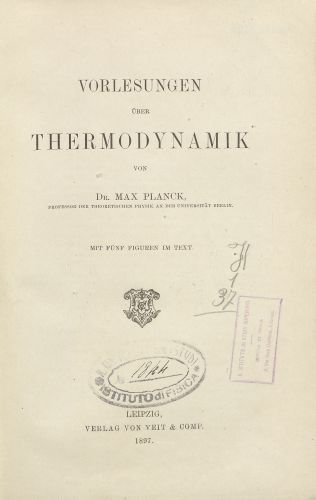Error
Vorlesungen über Thermodynamik
The Vorlesungen über Thermodynamik (Lessons of thermodynamics) of 1897, reissued several times (1905, 1911 and 1913), translated and reworked, constitute the synthesis between the thermodynamics of the origins, where the negation of perpetual motion formed the presupposition of the second principle, and the statistical thermodynamics of Ludwig Boltzmann (1844-1906), dominated by the concepts of entropy and irreversibility of natural phenomena. In the statement of Max Planck (1858-1947), then professor of theoretical physics at the University of Berlin, the second principle of thermodynamics has, in fact, a much more general character than each of the previous versions, in which heat appeared systematically. For Planck (page 80, sentence within inverted commas): “it is impossible to build an engine that works according to a complete cycle, and produces no other effect except the lifting of a weight and the cooling of a heat tank.”


